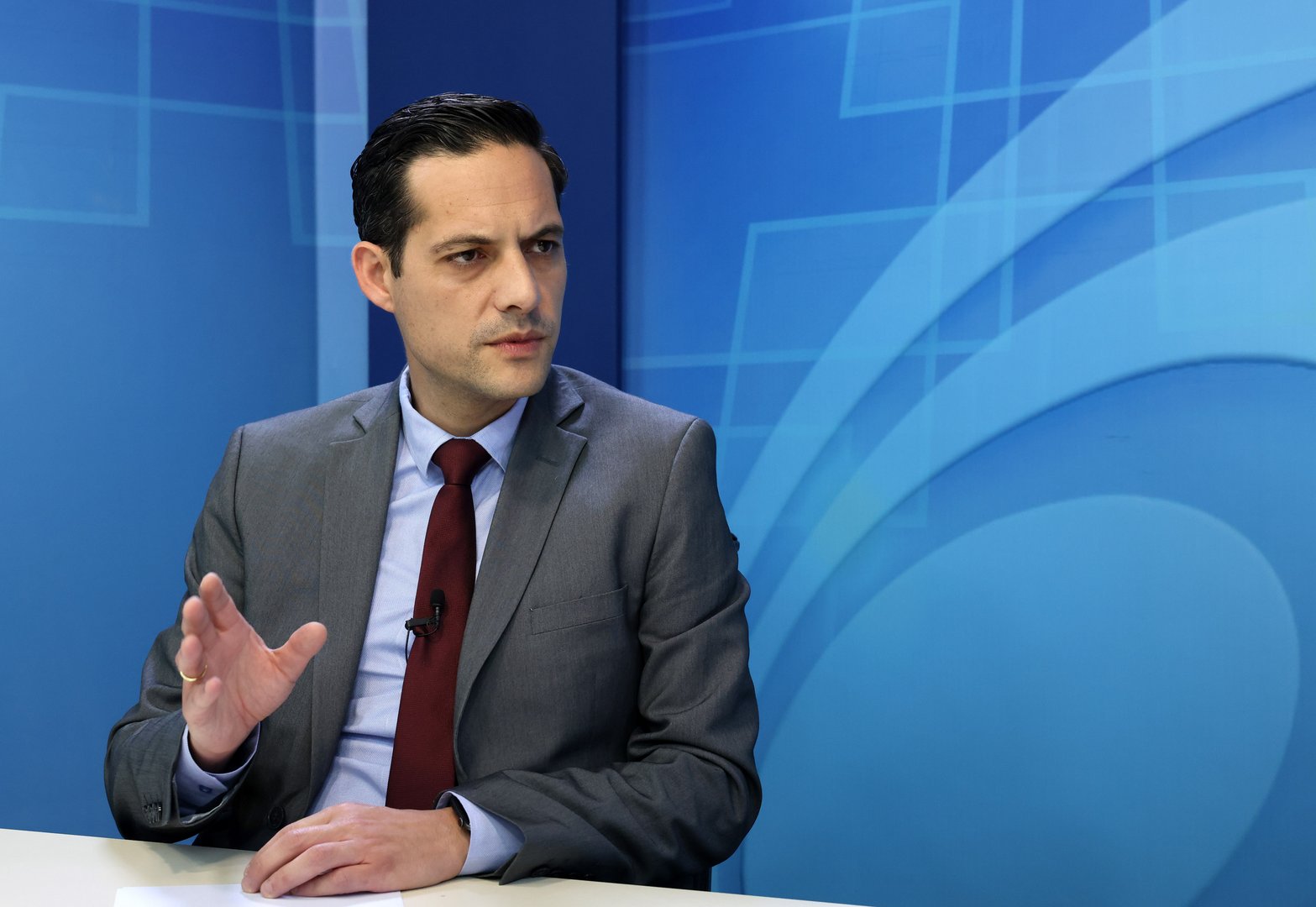US military presence in Cyprus prompted a wave of backlash on Friday, spiraling into a full out row between the government and opposition party Akel, while protestors in Limassol chanted ‘No Harbour for Genocide’ over a US assault ship docked in Limassol.
Akel accused the government of dragging Cyprus into the middle of extremely heightened tensions by consenting to the “continuing concentration of foreign military forces on our island.”
This makes “our country part of the problem.”
A day earlier, US amphibious assault ship, USS Wasp arrived in Limassol, prompting members of the public to organise a protest at the city’s Molos area close to the harbour for Friday at 6pm.
Under the slogan ‘No Harbour for Genocide’ organisers said “join us for a public demonstration and say no to the ships of death in our ports.
“We demand that all ports and states refuse to service ships supplying the state of Israel the means to commit genocide against the Palestinian people.”
Akel called on the government to recognise how much this was amplifying Cyprus’ involvement in the regional tensions and “the dangers this will have to the safety of the country.”
“Our entire vicinity is threatened with an explosion of unimaginable and dramatic consequences. Against this backdrop, the continuing build-up of US military forces on our island, both inside and outside British bases, is heightening our risks and concerns.”
It added that if the government did not care for the slaughter of the Palestinian people then at least it could care for the security of Cypriot people.
“Cyprus’ role should be a bridge of peace and humanitarian assistance, not a foreign military base.”
Government spokesman Konstantinos Letymbiotis hit back saying that recent movement of ships and aircraft in Cyprus is part of the island’s humanitarian role in light of developments in the region.
The increased activity observed in recent days, involving the presence of ships and aircraft, “falls within the scope of Cyprus’ humanitarian responsibilities.”
“These efforts are aimed at supporting potential evacuations if necessary,” he said.
“Our hope is to avoid any escalation of the crisis, and we are working towards that goal with our international partners.”
Weighing in, US ambassador to Cyprus Julie Fisher posted on X that the USS Wasp is visiting Cyprus “in support of long-planned US-Cyprus partnership activities.
“The visit comes at a time when the US continues all efforts along with key partners to de-escalate regional tensions & to be prepared to support civilians in crisis.”
Letymbiotis also added that preparations for the activation of the ‘Estia’ plan, which would facilitate the evacuation of third-country nationals through Cyprus, are ongoing.
“This explains the current level of activity on the island,” he said.
Letymbiotis also stressed the importance of remaining calm and serious during this critical period and cautioned against the uncritical acceptance of false information targeting the Republic.
This did not appease Akel, which called on the government to give a clear answer on whether its stance at this “critical juncture” was turning Cyprus into a bridge of peace or making it part of the problem.
Letymbiotis responded once more saying Akel was being wholly irresponsible, calling its stance sad and compatible with fake news.
“When the humanitarian role of our country is recognised and welcomed by the entire international community, it is worth questioning the decision of perpetuating false and non-existent news.”
Earlier this week, the defence ministry issued a brief statement that Cypriot and US military forces would carry out training exercises in Nicosia’s flight information region (FIR).
Government sources clarified the British bases will have no part in this exercise, though no clear answers were given on whether this development was pre-planned or a result of escalating regional tensions.
Cyprus’ role in the ongoing war between Israel and Gaza has prompted a number of protests, particularly for the role of the British bases.
In June, Hezbollah directly threatened Cyprus, saying it would consider the country “a part of the war” if it continued to allow Israel to use its airports and bases for military exercises.
The government has been at pains to reiterate that Cyprus is uninvolved, and “positions itself as part of the solution rather than the problem.”
The state has also indirectly sought to send out the message that Hezbollah’s leader Hassan Nasrallah did not “threaten Cypriots but rather, warned them,”and that the clarification came through “indirect contacts.”







Click here to change your cookie preferences